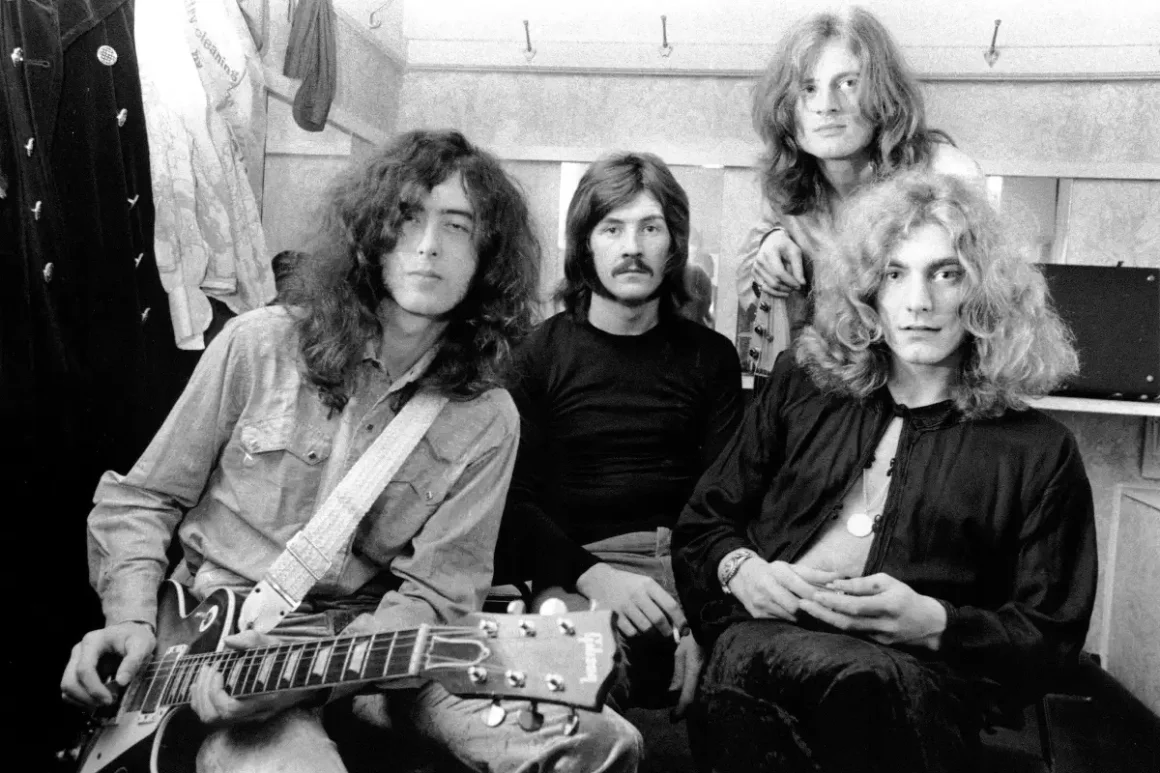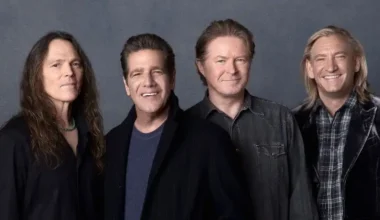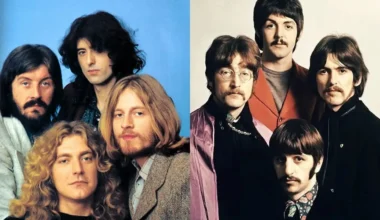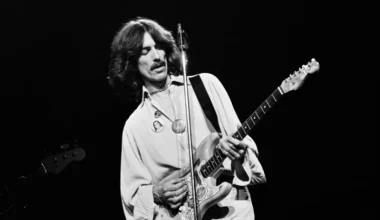The band most strongly associated with the idea of esoteric rock music is Led Zeppelin, a sonic monster. Despite a drive in Morocco inspiring them, the group consistently embraced a metaphysical bent. They produced songs like the expansive “Kashmir.” It featured a majestic string melody and Robert Plant’s otherworldly delivery. The Orientalist title drew upon the supposedly mystical Indian Subcontinent.
At Zeppelin’s height, the foursome seemed to fans like superheroes, an übermensch, if you will. However, the internet and a large number of seriously flawed people have since destroyed the traditional concept of the rockstar. With Plant narrating stories steeped in mythology and fantasy from around the world, the group’s massive soundscape carried their legions of admirers. Their music transported listeners far into the subconscious.
Plant’s menacing cry and each member’s sheer technical prowess undoubtedly contributed to their standing. However, the moment he jokingly referred to himself as the “golden god” captures the essence of the time. It strongly implies that the group looked like kings from the bygone eras they frequently invoked. This was how they appeared to the common mortals purchasing their records.
Plant’s lyrics have been a significant part of his group’s legendary status. They have crossed many topographies and folklore. These range from the land of ice and snow inhabited by the Vikings to the sun-beaten Atlas mountains that are so central to Mediterranean antiquity. However, things weren’t always so fantastical. Songs like “Kashmir” and the appropriately titled “Achilles Last Stand” make up this part of the group’s story. If you look a little closer at the true nature of a song like the latter, you’ll discover that it is enmeshed in the groove of the most authentic, grounded kind of rock ‘n’ roll.
The band was always purists of blues and rock ‘n’ roll, even though guitarist Jimmy Page, the group’s creative director, had developed his idea for the group’s sound while they were performing as The Yardbirds, trying to create sounds that made rock music darker and more expansive than it had been in the late 1960s.
Fans don’t need to look far to see how deeply connected they are—they covered the iconic Willie Dixon and J. B. Lenoir track, “You Shook Me,” on their 1969 debut. They transformed Howlin’ Wolf’s “Killing Floor” into “The Lemon Song” on Led Zeppelin II. Furthermore, it’s evident from swaggering, blues-infused songs like “Communication Breakdown,” “Whole Lotta Love,” and the twisted “Black Dog” that the group was just as influenced by Chicago’s and the Mississippi Delta’s modest sounds as they were by fantasy.
Another well-known rock and roll acolyte has already brought attention to this issue. According to AC/DC guitarist Angus Young, Led Zeppelin isn’t all that esoteric. He is a guitar hero who has carried the torch of the genre’s heroes to the present day. The late Elvis Presley, known as the “King of Rock and Roll,” is considered to be their model. His influence deeply ingrains him in the genre’s history.
He once said to VH1, “I guess I’d just say plug into Elvis Presley if you want somebody looking for a Led Zeppelin type.” You know how a lot of the early Presley had a little Led Zeppelin influence?
Furthermore, “You’re hearing Robert Plant in Presley.”
Even though there was an obvious rock ‘n’ roll connection between the two acts, I doubt many would have drawn a precise comparison between Presley and Plant. Their worldviews, accentuations, and aesthetics are distinctly different. Though, there is something in the pout and hips.








